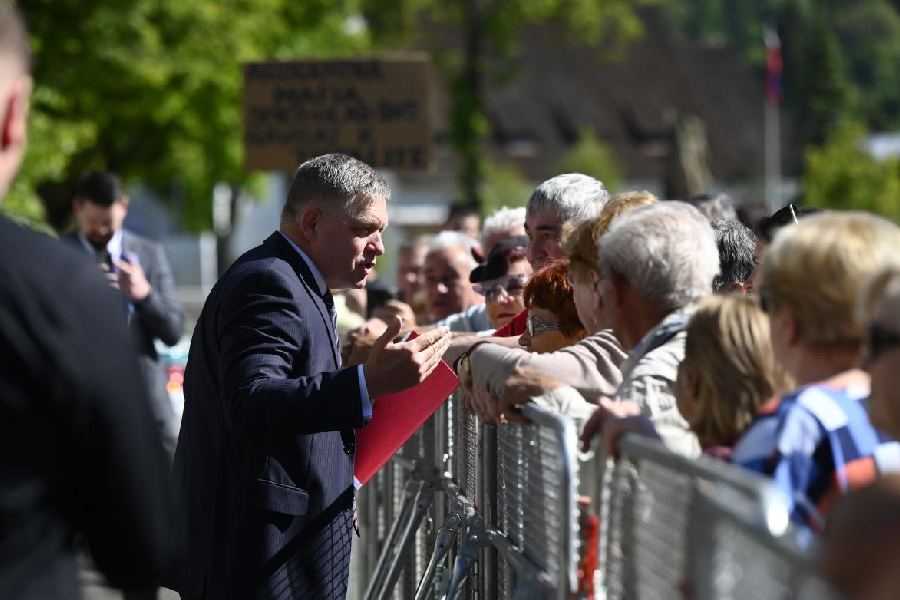The man accused of attempting to assassinate Slovak Prime Minister Robert Fico made his first court appearance Saturday as the nation's leader remained in serious condition recovering from surgery after surviving multiple gunshots, Slovak state media said.
Fico, 59, was attacked as he greeted supporters following a government meeting Wednesday in the former coal mining town of Handlova. The suspect was tackled to the ground and arrested.
Prosecutors are seeking an order from Slovakia's Specialised Criminal Court to detain the suspect.
Prosecutors told police not to publicly identify the suspect or release other details about the case, but unconfirmed media reports said he was a 71-year-old retiree known as an amateur poet who may have once worked as a mall security guard in the country's southwest.
Government authorities gave details that matched that description. They said the suspect didn't belong to any political groups, though the attack itself was politically motivated.
The courthouse in Pezinok, a small town outside the capital, Bratislava, was guarded by officers wearing balaclavas and carrying rifles. News media were not allowed in the courthouse and reporters were kept behind a gate outside.
Police on Friday had taken the suspect to his home in the town of Levice and seized a computer and some documents, Markiza, a Slovak television station reported. Police didn't comment.
Fico underwent another round of surgery Friday to remove dead tissue from his body, said Miriam Lapuníková, director of the University F. D. Roosevelt hospital in Banska Bystrica, where Fico was taken by helicopter after he was shot.
He also underwent a CT scan and was awake and stable in an intensive care unit. She described his condition as “very serious.”
World leaders have condemned the attack and offered support for Fico and Slovakia.
Fico has long been a divisive figure in Slovakia and beyond. His return to power last year on a pro-Russia, anti-American platform led to worries among fellow European Union and NATO members that he would abandon his country's pro-Western course, particularly on Ukraine.
At the start of Russia's full-scale invasion in February 2022, Slovakia was one of Ukraine's staunchest supporters, but Fico halted arms deliveries to Ukraine when he returned to power, his fourth time serving as prime minister.
Fico's government has also made efforts to overhaul public broadcasting — a move critics said would give the government full control of public television and radio. That, coupled with his plans to amend the penal code to eliminate a special anti-graft prosecutor, have led opponents to worry that Fico will lead Slovakia down a more autocratic path.
Thousands of demonstrators have repeatedly rallied in the capital and around the country of 5.4 million to protest his policies.
Fico said last month on Facebook that he believed rising tensions in the country could lead to the killing of politicians, and he blamed the media for fuelling tensions.
Before Fico returned to power last year, many of his political and business associates were the focus of police investigations, and dozens have been charged.
His plan to overhaul the penal system would eliminate the office of the special prosecutor that deals with organised crime, corruption and extremism.










